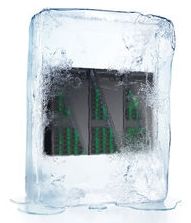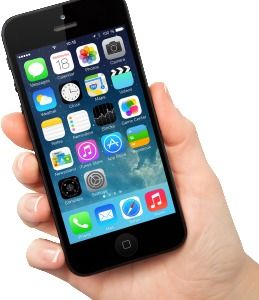Biometric technology can be used for everything from shopping apps to police work, but it brings with it a whole host of privacy concerns.



Let’s just hypothesize a little on this topic: let’s say Apple goes ahead and gives in to the US Government and enables government to access the phone’s info. Does Apple have any protection in the future from lawsuits from it’s customers in situations where their own customers information is hacked by criminals and published to the world or used for illegal activities? Because I do see in the future more lawsuits coming at the tech companies for not ensuring their platforms and devices are un-hackable. So, if the government has its way; what protections does tech have now with any future lawsuits by consumers and other businesses?
His comments come during the ongoing legal battle over an iPhone used by Syed Farook, one of the individuals responsible for the San Bernardino, Calif. mass shooting December 2. “I don’t think requiring backdoors with encryption is either going to be an effective way to increase security or is really the right thing to do for just the direction that the world is going to”.
This is because First Amendment treats computer code as speech and according to Apple, meeting the demands of the government would be equivalent to “compelled speech and viewpoint discrimination”.
The Electronics Frontier Foundation (EFF) has said it will be filing an amicus brief in support of Apple with the courts.

This could be very very tricky for a number of reasons: 1) how will this work with people who develop laryngitis or some other illness disrupting their speech? 2) what happens if a person uses a recorded voice or voice changer? 3) what happens when a person’s voice does change as they get older or have a medical procedure done that permanently alters the voice? I could list more; however, I believe that researcher will realize that there will be a need for two forms of biometrics when it comes to the voice.
Software firm Nuance believes that in the near future, there will be an expectation from customers to interact with technology in a more human-like manner.

Reminder to everyone who loves hearing about what NextGen Technologies that US Government has been working on: March 11th, US IARPA is hosting a conference on “Odin” (detection technologies to ensure biometric security systems can detect when someone is attempting to disguise their biometric identity.)
The Intelligence Advanced Research Projects Activity plans to hold a conference related to a biometric presentation attack detection programme called Odin.
The conference, to be held on 11 March in Washington, will be to provide information on Odin and the research problems the program aims to address, the agency noted.
The goal of the Odin programme is to develop biometric presentation attack detection technologies to ensure biometric security systems can detect when someone is attempting to disguise their biometric identity.

Portland computer science research company Galois snagged a $6.2 million grant from the Department of Defense for a project that, if successful, could make the current battle between the FBI and tech giant Apple obsolete.
The three-year research contract comes from the Defense Advanced Research Projects Agency and will fund research into quantifying privacy preservation systems.
‘Can you quantify how private a system is or isn’t and can you make a judgment about it,’ said Galois CEO Rob Wiltbank,…


The biometric security methods for online transactions have been in trials by MasterCard since last July and are being expanded around the world.
MasterCard is planning to launch fingerprint and selfie biometric identification options for customers in the United States and in other parts of the world this summer as it finds that users are comfortable and confident with the technology.
The expansion of the program, which began last July as a trial project to see how consumers would respond to the use of selfies and fingerprints to replace passwords for their online purchases, was announced by the company on Feb. 22 in Amsterdam, where a larger testing project involving some 750 users over six months was also conducted.

Here is a question that keeps me up at night…
Is the San Bernardino iPhone just locked or is it properly encrypted?
Isn’t full encryption beyond the reach of forensic investigators? So we come to the real question: If critical data on the San Bernardino iPhone is properly encrypted, and if the Islamic terrorist who shot innocent Americans used a good password, then what is it that the FBI thinks that Apple can do to help crack this phone? Doesn’t good encryption thwart forensic analysis, even by the FBI and the maker of the phone?
In the case of Syed Rizwan Farook’s iPhone, the FBI doesn’t know if the shooter used a long and sufficiently unobvious password. They plan to try a rapid-fire dictionary attack and other predictive algorithms to deduce the password. But the content of the iPhone is protected by a closely coupled hardware feature that will disable the phone and even erase memory, if it detects multiple attempts with the wrong password. The FBI wants Apple to help them defeat this hardware sentry, so that they can launch a brute force hack—trying thousands of passwords each second. Without Apple’s help, the crack detection hardware could automatically erase incriminating evidence, leaving investigators in the dark.
Mitch Vogel is an Apple expert. As both a former police officer and one who has worked with Apple he succinctly explains the current standoff between FBI investigators and Apple.
The iPhone that the FBI has is locked with a passcode and encrypted. It can only be decrypted with the unique code. Not even Apple has that code or can decrypt it. Unlike what you see in the movies, it’s not possible for a really skilled hacker to say “It’s impossible“” and then break through it with enough motivation. Encryption really is that secure and it’s really impossible to break without the passcode.
What the FBI wants to do is brute force the passcode by trying every possible combination until they guess the right one. However, to prevent malicious people from using this exact technique, there is a security feature that erases the iPhone after 10 attempts or locks it for incrementally increasing time periods with each attempt. There is no way for the FBI (or Apple) to know if the feature that erases the iPhone after 10 tries is enabled or not, so they don’t even want to try and risk it.
 So the FBI wants Apple to remove that restriction. That is reasonable. They should, if it is possible to do so without undue burden. The FBI should hand over the iPhone to Apple and Apple should help them to crack it.
So the FBI wants Apple to remove that restriction. That is reasonable. They should, if it is possible to do so without undue burden. The FBI should hand over the iPhone to Apple and Apple should help them to crack it.
However, this isn’t what the court order is asking Apple to do. The FBI wants Apple to create software that disables this security feature on any iPhone and give it to them. Even if it’s possible for this software to exist, it’s not right for the FBI to have it in their possession. They should have to file a court order every single time they use it. The FBI is definitely using this situation as an opportunity to create a precedent and give it carte blanche to get into any iPhone without due process.
So the answer to your question is that yes it is that secure and yes, it’s a ploy by the FBI. Whether it’s actually possible for Apple to help or not is one question and whether they should is another. Either way, the FBI should not have that software.

Northrup Grumman’s new Cyber Situational Awareness (CSA), which is a set of web-based tools designed to visualize, understand, and share cyber databases being showcase at the WEST 2016 navel conference on February 17.
Northrop Grumman Corporation (NYSE: NOC) has announced that it will be showcasing key naval capabilities at the WEST 2016 navel conference on February 17, 2016. The corporation will unveil its full-spectrum cyber solutions, biometric defense solutions, unmanned aircraft and much more at the event. WEST 2016 is co-sponsored by AFCEA and the US Naval institute in San Diego. Northrop Grumman is a platinum sponsor of the conference, which is themed “how we make the strategy work.”
The defense contractor will be showcasing its sea serving operations and capabilities that will help the US armed forces combat challenges and difficulties more efficiently. It is also expected to display how it integrates cyber-technology into all of its defense segments. The key highlight of its cyber-suite is its Cyber Situational Awareness (CSA), which is a set of web-based tools designed to visualize, understand, and share cyber databases.
Northrop Grumman is committed to building resilience into its cyber solutions to protect and defend critical information of the armed forces. The cyber solution focuses on delivering complete end-to-end mission capabilities, including situational awareness, real-time mission analytics and damage assessment, and utmost integrated security. The defense contractor’s Blue WASP software tool will also be on display at the conference. The tool alerts navy boats of attacks against US navy vessels.